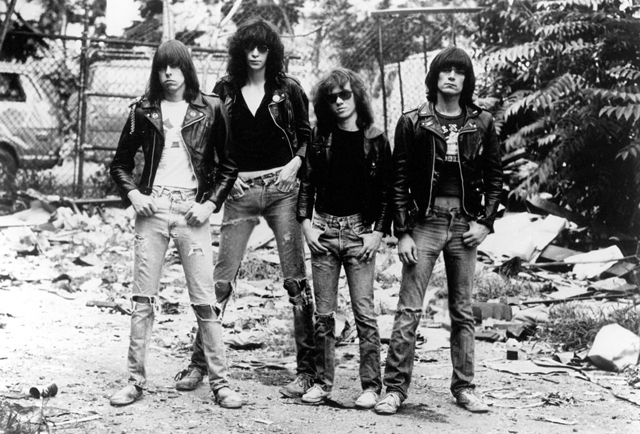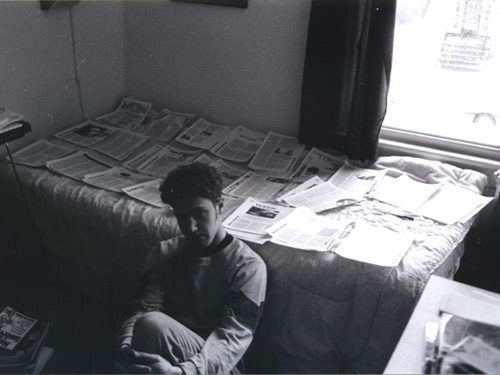
I remember an interview with Joey Ramone, where he bemoaned how the record industry had robbed him of the experience of creating and sharing music in a timely fashion. That, in the early days of The Ramones, they would record a song one week, and release it on 7″ record the next week. That he could directly communicate with his fans that quickly.
By the time The Ramones found success, it would be months between recording and releasing a song, and by that time, the energy and enthusiasm he felt for it had dwindled a bit. That it didn’t feel as though he was directly sharing with his audience as creator and listener. This is partly why bands love playing new material at their live shows – because they are representative of how they feel in that moment – when they are ideas still being born, with a passionate need to communicate them to fans now.
When you think back to the world before books, this was a core part of storytelling – the immediacy of the connection between the storyteller and the audience. Stories were as much about the interaction as the content. Stories would be shaped and evolve and change over time, depending on region, culture, personality, or a variety of other reasons.
Like the music industry, publishing has evolved, for the most part, to a system where it can take years to create a work, and then years to get an agent, a book deal, and to turn that idea into a printed work. Even with digital books, this can be the case when working with traditional players. You get slotted into a system. And as any published author will tell you…. you EARN it, slowly, month by month through the process leading up to publication.
And then, finally, you are a published author. Your book, an expression of years of work, is ready to be discovered. That communication between creator and reader can finally happen.
But this has changed. The publishing world is going back to the days that Joey Ramone pined for. Creators now have many choices as to how and when their work is shared. And these are not “either or choices” – where one has to choose EITHER traditional publishing, or independent publishing. They simply have more options as to how they can share, how they can create, and how they can manage their writing career and relationship with their audience.
My friend Guy LeCharles Gonzalez released his first ebook this week: Handmade Memories. When I spoke with him about it, I was shocked to learn a key fact about the production of the book: while the content was created over the course of years, when he finally sat down to package the material into ebook format, it took – LITERALLY – a single evening to publish his ebook. He started on Friday evening, just thinking he would get the process started, and finished it by Saturday morning.
The book went on sale that day.
Guy is eager to point out that the content is not second-rate work. This is his best work, created over the course of years. But once he was ready to share, he was surprised at how quickly it could be packaged, and shared via ebook format.
My friend Jane Friedman recently released her own ebook: The Future of Publishing: Enigma Variations. It’s a brilliant and fun work, and it felt even more personal to me in that I know she published it on her own. That she chose when to release it (April Fools Day), and that she could ensure every aspect of it reflected her vision of the work. That this work reflects who she is now, what she wanted to say now. That she didn’t have to spend months shopping it around, and more months waiting for publication.
This is not, in any way, shape or form a slight to the traditional publishing process. I love publishing in all its forms. Yes, even the “Snooki has her own book” form.
I am simply glad that new forms of publishing are opening up, that creators are finding new freedoms to choose how to publish and when to publish. There are no lines here – this is not a future of one type of publishing vs another. All forms of publishing have a future – and for creators, their careers will likely move across these forms and processes again and again.
When I was in college, I produced a music zine every month. Here’s a photo of me in 1994 producing one issue:

It was a labor of love, created in the late hours of the evening at Kinkos. It was a very personal work, and I went deeply into debt to fund that project.
I’m thrilled that creators can now share their work at will – and without going into debt. That they have choices – choices to do right by their work and to turn the process of from sharing content, to truly interacting with others, just as traditional storytellers did.
-Dan
